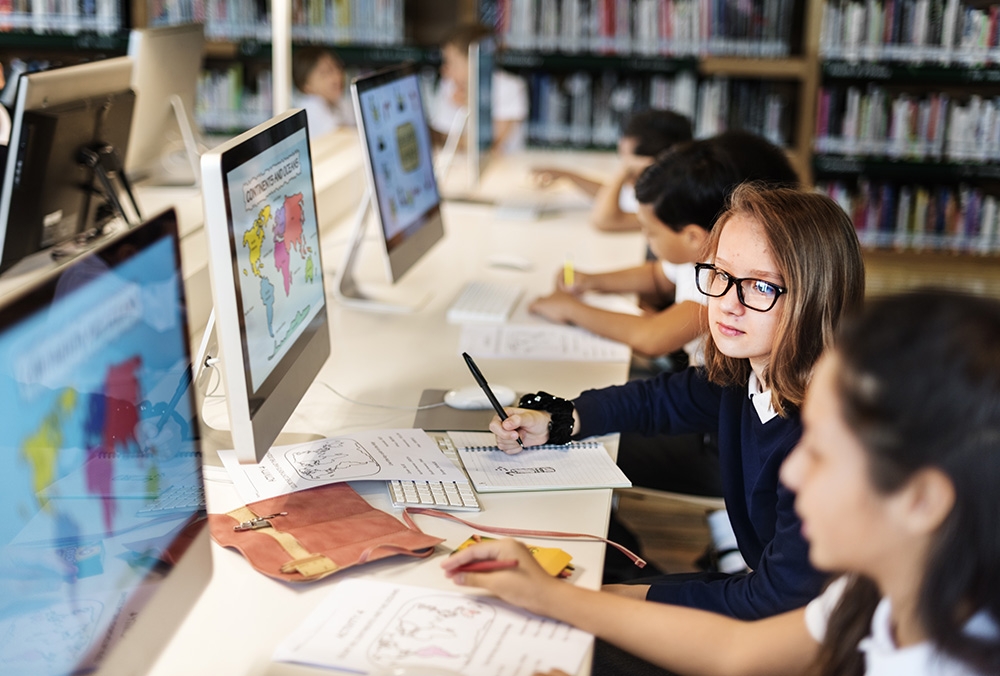
The education technology degree prepares the student with the knowledge and skills needed to utilize technology – hardware and software, to facilitate effective learning in various learning organizations.
Education technology covers a diverse field that includes components such as instructional design, technology leadership, media, and curriculum design.
Professionals work in academic fields such as education, instructional design, and program assessment.
They are responsible for integrating technology into learning environments, using that technology to enrich the traditional curriculum and the overall learning experience.
Education Technology degrees prepare future teachers and educational professionals to serve as technology leaders.
Students explore digital tools, develop pedagogical skills, devise classroom strategies, and learn how to support education through technology.
For example, students learn how to implement blended learning techniques, provide professional development to teachers, and create technical assistance procedures for colleagues.
Most of the coursework will apply to adult education environments (public and private schools, corporations, government agencies, the nonprofit sectors).
The degree emphasizes new ways of acting and thinking about technology integration in any learning environment. Students acquire the skills and knowledge needed to support technology-based learning and to provide teacher development assistance to educators. Assignments may explore how to maximize student learning, design learning environments, and integrate technology into the curriculum.
Curriculum in General
The typical four-year Bachelor’s degree (120 to 136 credit hours) in education technology offers a comprehensive curriculum divided between general education coursework, major requirements, and electives.
The emphasis of this curriculum covers both theoretical and practical knowledge.
The classes introduce students to subjects such as classroom technologies, interactive media, educational psychology, and transformational learning.
The theoretical knowledge and technical or practical skills allow students to implement instruction through a course management system.
To use multimedia effectively in the classroom, you will need to study the integration of different types of media.
As well as how each enhances the learning experience. Coursework also covers the methods for measuring the effectiveness of technology on the students’ learning capabilities.